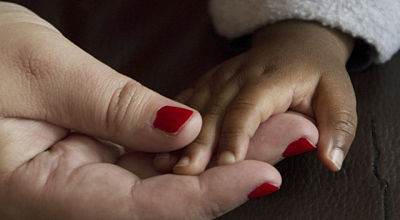Door of Hope Rescuing Abandoned Babies
“We believe no child is a mistake,” claims Nicole Gillette, a volunteer at Door of Hope, a charity that takes in and cares for abandoned babies until they are adopted. “Every child that is created has a purpose and a life.”
Nearly 200 babies are abandoned monthly in South Africa, between Johannesburg and neighboring community Soweto; typically only 60 are found alive. It is unknown how many more are disposed of in the river. Babies are often rescued from plastic bags or rubbish bins. Many infants come to Door of Hope malnourished, premature, neglected, sick or abused.
The charity began in 1999, when founder Cheryl Allen observed that many women would prefer to give up unwanted or unplanned children, rather than abandon them to die, if they could do so anonymously. To answer this need, Allen partnered with Berea Baptist Mission Church, a refugee church in a downtown neighborhood. Men from the church cut a hole in their facility’s security wall and installed a “baby bin,” wiring it with sensors and an alarm to alert caregivers when something or someone is deposited. Since then, nearly 1,000 babies have come through Door of Hope, rehabilitated and adopted into loving homes.
“We’re really grateful to the moms that give us their babies,” says Gillette, “because they gave their children hope. They gave their children a chance at life, and we’re never going to … condemn them for that choice.”
Babies come to Door of Hope in all conditions. Newborn twins have been deposited in a laundry basket, covered in clothing, their cords still uncut. One girl had been repeatedly sexually abused, sold by her mother to men who believed the myth that intercourse with a virgin would cure their HIV. After restorative surgery and extensive rehabilitation, she was adopted into a Christian home. Another baby came in with a misshapen skull; fears of brain damage proved unfounded, and she was taken into a family in Norway.
Upon receiving a baby, Door of Hope staff and volunteers immediately perform a medical evaluation to determine if hospitalization is necessary. Once medically stable, the babies are taken to one of three temporary homes, where they are cared for 24/7 by volunteers. Particularly frail infants are “kangaroo’ed,” kept in physical contact with a caretaker at all times, until they are stronger. During the day, the staff and volunteers try to keep their charges on a schedule of sleeping, feeding and interaction; spending time face-to-face greatly helps the infants’ development.
“We’ve had remarkable miracles in that [special-needs babies] have recovered and that some of them that [initially] weren’t able to go up for adoption have gone up for adoption,” says Allen.
Door of Hope works through an adoption agency to place the children in loving, preferably Christian homes. Babies are held for three months before they can be declared abandoned, in case a relative wishes to claim them. After this period, the babies are adoptable nationally. If they are not adopted after a period of time, the process is opened to other countries. Many are taken in by families in Norway, Sweden and the Netherlands.
Despite its record of success, Door of Hope has encountered resistance. Due to the questionable nature of the bin, the authorities prefer the mother to sign the babies over before a presiding officer at court. Nevertheless, all the babies are legally placed in the care of Door of Hope and all steps followed according to the prescribed manner of the Children’s Act.
Like its commitment to needy babies, Allen’s organization also has held fast to its Christian roots. Every baby Door of Hope takes in is dedicated at Berea Baptist Mission Church and their salvation prayed for.
“We pray over each child that comes in, that God will remove the bad memories … [and] heal their psyches, their minds and their emotions, so that it won’t affect them in their future,” says Allen.
When asked whether being a decidedly Christian organization makes a difference in children so young, New Zealand volunteer Philippa Williamson is emphatic. “We sing ‘Jesus Loves You’ and other Christian songs until they recognize them,” she says. “We tell them Jesus loves them everyday.”
Allen agrees: “We’re not just doing this to save babies. We’re doing this as a ministry to Jesus so that we can share the Gospel. The love of God motivates us, and that’s what keeps us going.”
Door of Hope accepts volunteers and donations from all over the world. Find out more.
Jacqueline Gordon served in Africa for five months as a writer with IMB’s Global Communication Team.




























































